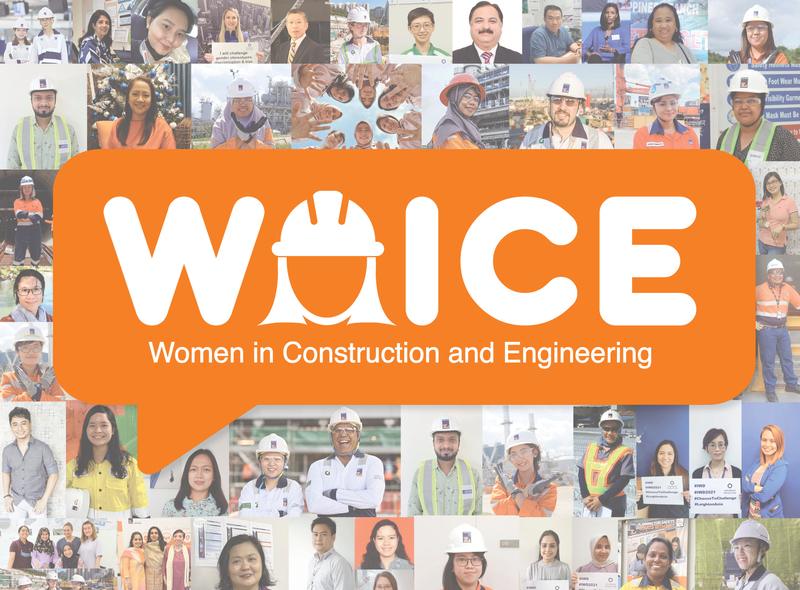Our Women in Construction series now turns to Gheanifa Irma Yustika, a civil engineer in our Indonesia Team. She drafts shop drawings and is working closely with consultants and the construction team to solve problems they encounter on-site. She is also a Temporary Work Designer and has acted as a Lifting Engineer on previous projects.
She joined our Graduate Engineers program in 2021 and is developing her career in Leighton Asia.
Gheanifa takes pride in her ability and enthusiasm to work on projects including the Tangguh Expansion Project, an oil and gas project which she considers her favorite project due to the highest standard required for safety and technical delivery.
What inspired you to join the industry?
As someone who gets bored with monotonous tasks, I joined the construction industry because I know it is dynamic. There are many types of projects that I can work on such as roads, bridges, buildings, infrastructure and so on. It means I will have the opportunity to rotate across various tasks and locations. There is a possibility to travel around the country and even around the world.
Describe your experience at Leighton Asia.
‘Dynamic’, ‘Interesting’, ‘Incredible’. As a Graduate Engineer, I was able to rotate across various departments and I was given chances to learn various disciplines, not just on the technical side but also regarding mindset and how the business works, such as commercial and planning.
Now as a Civil Engineer in one of our data centre projects here in Indonesia, these experiences truly help as I can look at issues not just on technical aspects but on the business side as well.
What makes Leighton Asia different?
Most of the construction companies in Indonesia require and often prioritise men for projects in remote areas. However, in my experience, Leighton Asia only saw that I was genuinely interested in working in remote projects and that I have the qualities and capabilities to go for it, and they supported it.
Leighton Asia has female technical staff which means they value qualifications and experiences, rather than gender.
What do you think about gender equality/diversity in the construction industry in Indonesia?
I think that when we talk about gender equality and diversity, it means we are given the same opportunities as a man, for let’s say, a technical job. In the construction industry in Indonesia, women are often stereotyped to work in administrative roles.
There is a notion that we are not strong enough to work on-site, especially in remote areas. We should start to see and think that men and women have the same capability to do work.
What else do you think can be done to further drive gender equality/diversity in the construction industry in general or in Indonesia?
To further drive gender equality and diversity, we start by giving the same opportunities to women for technical positions, and as project managers on-site. We as women don’t have to choose between career or family. We can have both.

